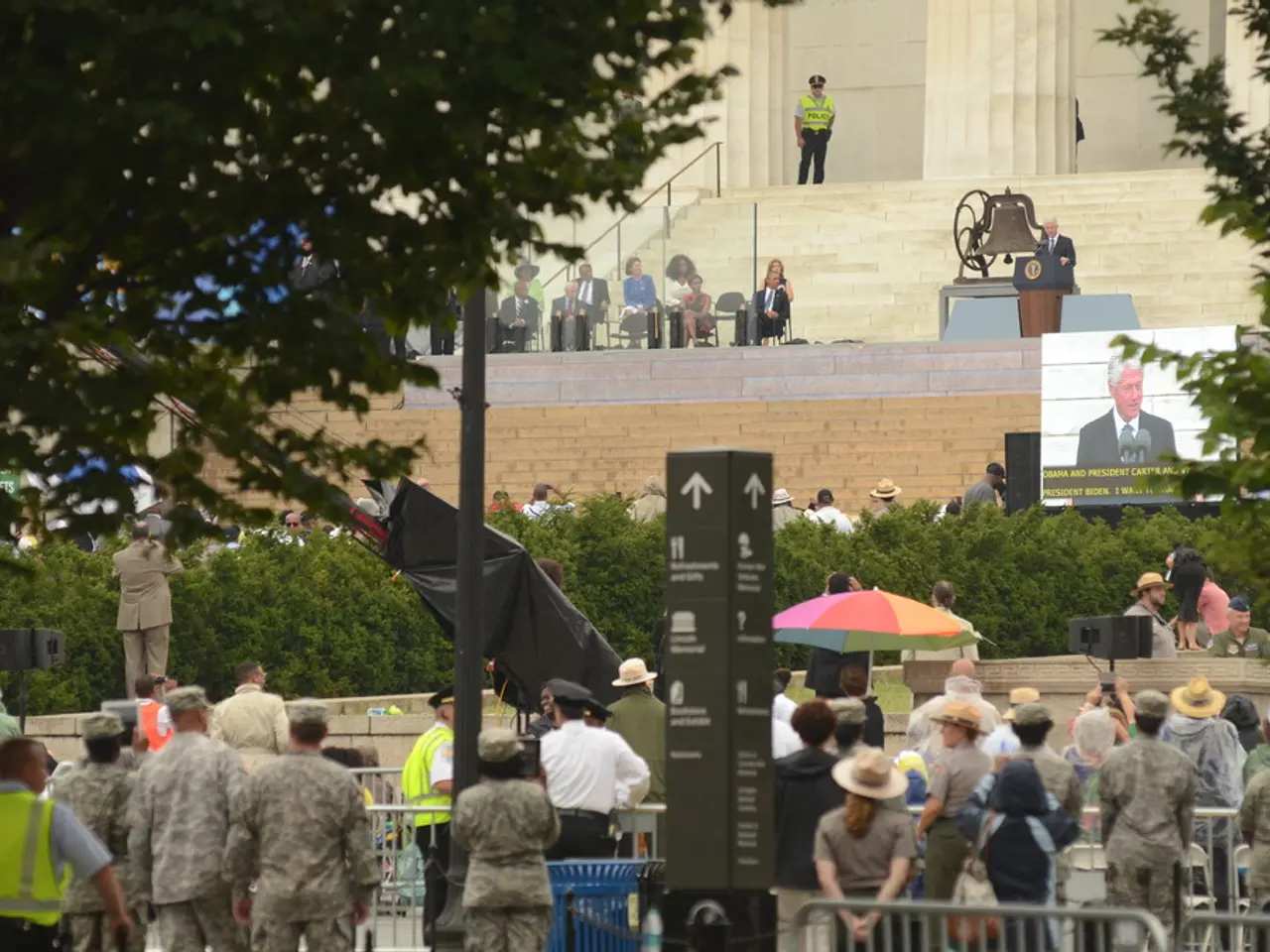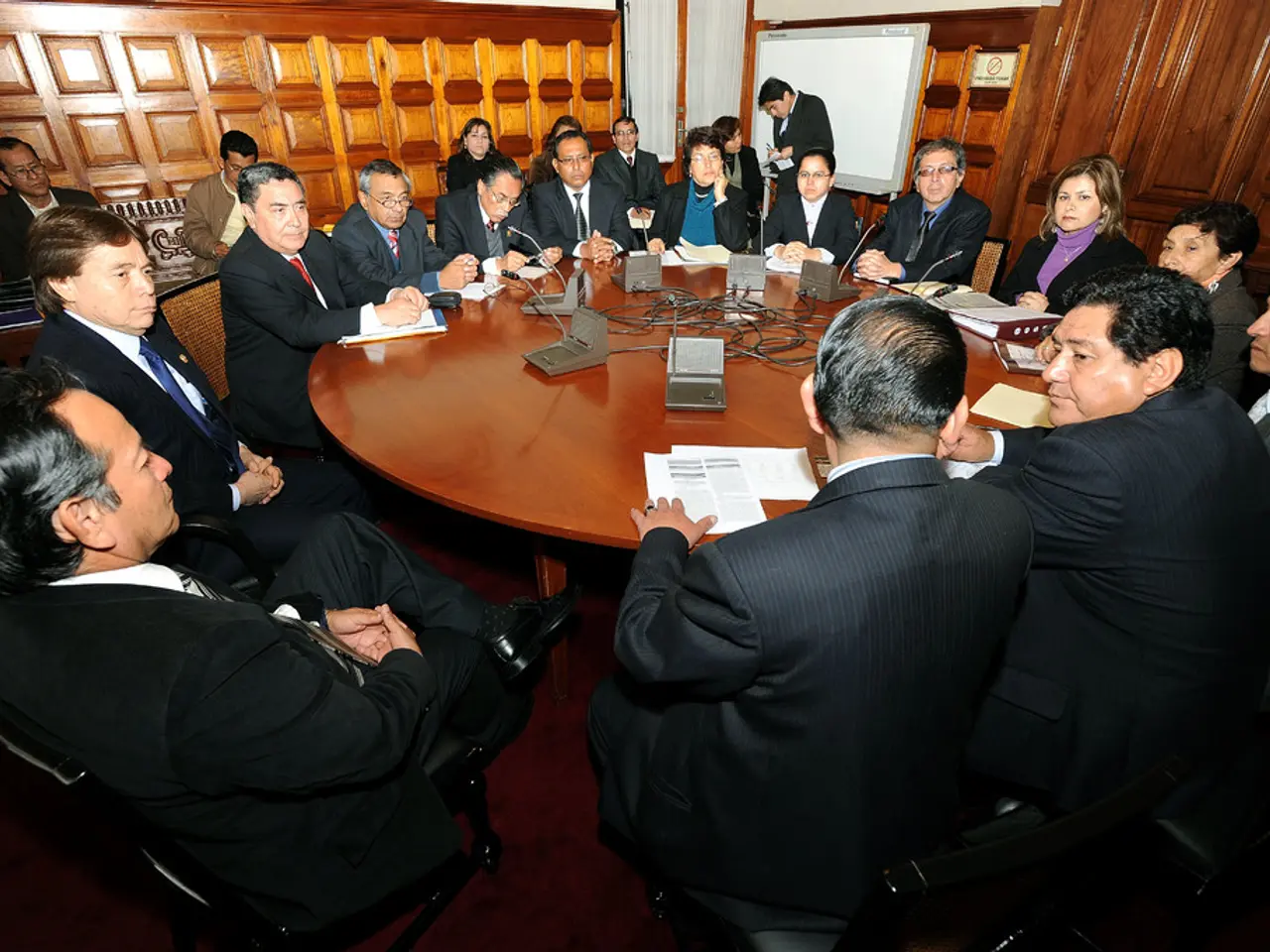Ultra-Orthodox political party withdraws from Israeli administration due to military service exemptions dispute
The Israeli coalition government, formed in December 2022, is currently facing a period of uncertainty following the withdrawal of two ultra-Orthodox Jewish parties, Shas and United Torah Judaism. This move has left Prime Minister Benjamin Netanyahu with a fragile minority government, backed by only 49 out of 120 lawmakers in the Knesset.
The coalition, an alliance between Netanyahu's Likud, far-right parties, and the ultra-Orthodox, has been subject to various challenges since its inception. One of these challenges has been the contentious issue of military service exemptions for ultra-Orthodox Jews, a practice that has been in place since Israel's founding in 1948.
The conscription of ultra-Orthodox Jews has been a long-standing issue in Israeli society, with large sections of the population required to serve in the army. However, the ultra-Orthodox community has been fighting to maintain this arrangement, arguing that full-time religious study is a service to the nation.
The departure of United Torah Judaism specifically reduces Netanyahu's coalition to a thin margin, and the potential exit of Shas could further weaken the coalition and potentially paralyze legislation. This situation could lead to instability but does not necessarily indicate an immediate collapse, as the parties may not vote to overthrow the government soon.
Opposition leader Yair Lapid has urged Netanyahu to call snap elections, despite Israel being embroiled in a war against Palestinian militants Hamas in the Gaza Strip. However, some experts view the recent developments as a "staged" crisis, primarily aimed at leveraging negotiations over the contentious issue of military service exemptions for ultra-Orthodox Jews.
The departure of Shas and United Torah Judaism is not the first time the coalition has faced internal strife. Otzma Yehudit temporarily withdrew earlier in 2025 but rejoined a couple of months later. New Hope rejoined the government in September 2023, following earlier departures and reorganizations. The situation remains fluid, with ongoing negotiations and potential shifts in party alignments.
Despite these challenges, the government continues to function, albeit with heightened political tensions. The potential exit of Shas could intensify debates over reforming the conscription law, straining the governing coalition further. The outcome of these debates could have significant implications for Israeli society and the coalition's stability moving forward.
The uncertainty faced by the Israeli coalition government, due to the withdrawal of Shas and United Torah Judaic, has escalated debates surrounding the contentious issue of military service exemptions for ultra-Orthodox Jews – a topic that intertwines arts, society, and politics. This fragile minority government, backed by only 49 lawmakers in the Knesset, may experience further weakening if Shas exits, potentially paralyzing policy-and-legislation related to war-and-conflicts and general-news. The opposition leader, Yair Lapid, has advocated for snap elections amidst Israel's ongoing military conflict with Palestinian militants Hamas, but experts suggest that the recent developments might be part of a strategic maneuver aimed at negotiating compromises on this critical issue.





